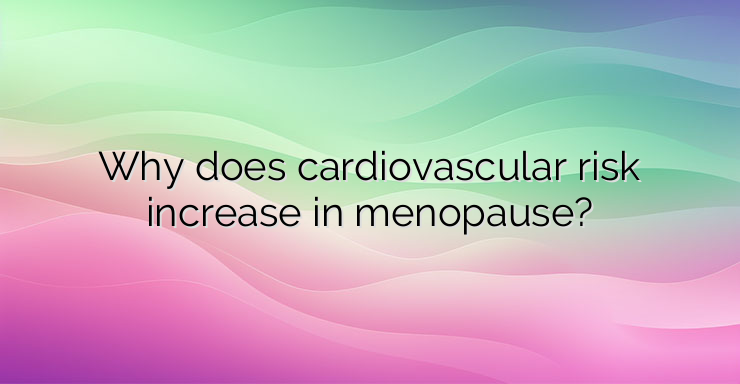During menopause, the cardiovascular risk in women increases, due to the decreasing activity of the ovaries, which also decreases the level of the female sex hormone estrogen. A new study published in the Journal of the Spanish Society of Cardiology has found that physical activity is the main factor influencing cardiovascular risk during menopause. A sedentary lifestyle triples the risk of death from cardiovascular disease in women over the age of 50. According to the study, the three factors that increase mortality from cardiovascular disease during menopause are: Sedentary lifestyle – spending most of the time during the day in a sitting position without doing any physical activity, which increases by up to three times the risk of death. Smoking – in women who smoke, the risk of death is up to 81.6% higher. Insufficient vegetable consumption – consuming vegetables less than once a week increases the risk of death by up to 75.8%. For the purposes of the study, 5,953 women aged 50-103 participated, of whom 42% had hypertension, 34% had high cholesterol, and 14% had been diagnosed with diabetes. The researchers followed the deaths among the participants for the period 2011 – 2017 and found that in 4% of them the death was due to cardiovascular diseases. The scientists found that with each passing year, the risk of death due to cardiovascular causes increased by 14%. The results of the study have enabled the creation of a cardiovascular risk assessment and prediction scale that is easily applicable to postmenopausal women. The sum of the points in the scale allows to estimate the probability of death due to cardiovascular diseases over a period of 6 years. Menopause is a period in which the drop in estrogen levels negatively affects women’s health and has implications for bone health and cardiovascular health. Estrogens help metabolize fat, lower “bad” cholesterol and increase “good” cholesterol. Estrogens have been found to prevent the formation of calcium deposits on the walls of blood vessels. During menopause, the risk of heart attack increases, but the risk of developing cardiogenic shock – the most serious form of heart failure after a heart attack – also increases by up to 60%. References: https://www.sabervivirtv.com/cardiologia/mas-perjudica-corazon-mujer-50-anos_7510 https://www.revespcardiol.org/es-pdf-S0300893221003663


Leave a Reply